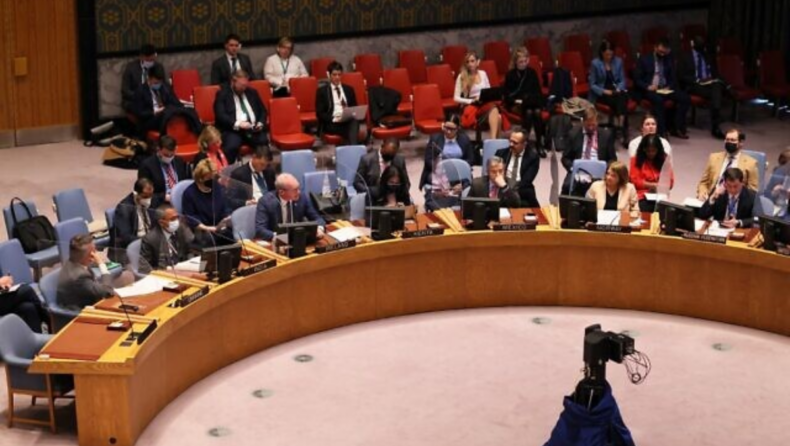Gaza: Jordan’s foreign minister spoke out against Israel’s “aggression” in the Strip and warned against “provocations” on the Temple Mount. The UAE, which helped organise the meeting, said it was “deeply concerned” about the violence.
In a statement, Riyad Mansour, the Palestinian Ambassador to the UN, said in a statement that the UN Security Council will hold an emergency meeting behind closed doors on Monday to talk about the latest flare-up between Israel and Palestinian Islamic Jihad in the Gaza Strip.

The meeting was asked for by the UAE, which is a member of the UNSC along with China, France, Ireland, and Norway, according to a statement from the UAE’s Foreign Ministry.
“The United Arab Emirates have stressed the need to bring calm back to the Gaza Strip, stop escalation, and protect civilian lives,” she said, adding that Abu Dhabi “expresses its deep concern over the current escalation and calls for maximum restraint to avoid being drawn into new levels of violence and instability.”
During the meeting on Monday, members of the Security Council will talk about “what’s going on now and how to help international efforts to achieve a full and fair peace,” a senior Emirati official said.
As part of the operation that started on Friday to stop what Israeli leaders said was an immediate threat to Israeli communities from the terror group Islamic Jihad, Israel has conducted a number of strikes in Gaza that have been aimed at Islamic Jihad.
The operation started after Israeli towns near the Strip had been closed and locked down for several days because of rumours of an imminent attack. The PIJ wanted to get back at Israel for arresting its West Bank leader earlier in the week.
Israeli leaders said the operation was started because the PIJ wouldn’t give up its plan to attack Israeli targets near the border.
The Israel Defense Forces said Sunday that since Friday, Islamic Jihad has fired more than 580 rockets at Israel.
Channel 12 news said, without citing any sources, that Israel was trying to get support for its actions from the UAE, with which it made official ties in 2020, and Saudi Arabia, with which it has had an unofficial relationship in recent years, but to no avail.
Ayman Safadi, the Jordanian foreign minister, called Israel’s operation in Gaza an “aggression” on Saturday night. He tweeted that he had talked about it with Tor Wennesland, the UN’s Middle East envoy.
He also said that Israeli “provocations” shouldn’t happen on Jerusalem’s Temple Mount on Sunday, when Jews will be celebrating Tisha B’Av, a holiday that remembers the destruction of the temples that Jews think once stood there.
From 1948 to 1967, Jordan was in charge of the West Bank and East Jerusalem. During the Six-Day War in 1967, Israel took control of the area and then claimed sovereignty over the Old City and a larger Jerusalem.
Jordan has always said that its treaties with Israel give it control over the Christian and Muslim holy sites in Jerusalem.
Israel has never agreed with this claim, but it does let the Jordan-funded Waqf run the Temple Mount on a day-to-day basis.
On past Tisha B’Avs, more than 1,000 Jewish pilgrims went to the place where Israelis and Palestinians have been fighting over and over again in recent years. Israel doesn’t think that these visits break the “status quo,” which is a deal that helps decide how people should act at the site.
Muslims are allowed to go to the Temple Mount and pray there, but non-Muslims are only allowed to go there. But Palestinians think that having so many Jewish visitors is a problem with the way things are now.













